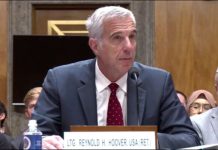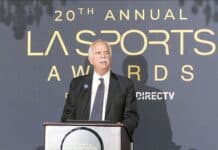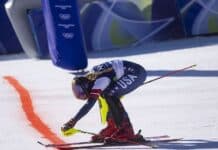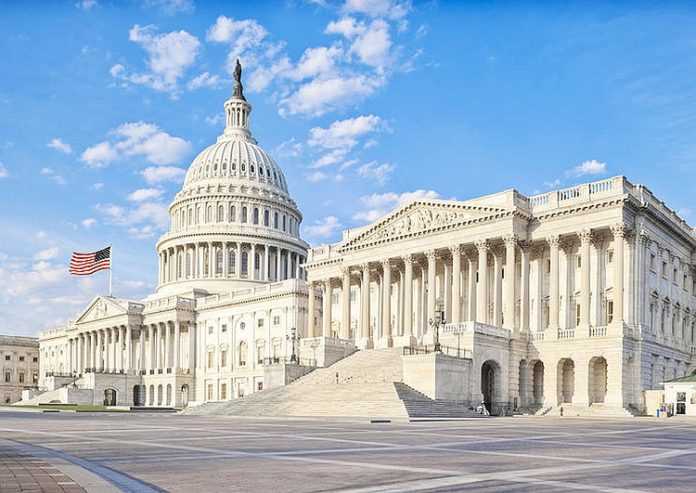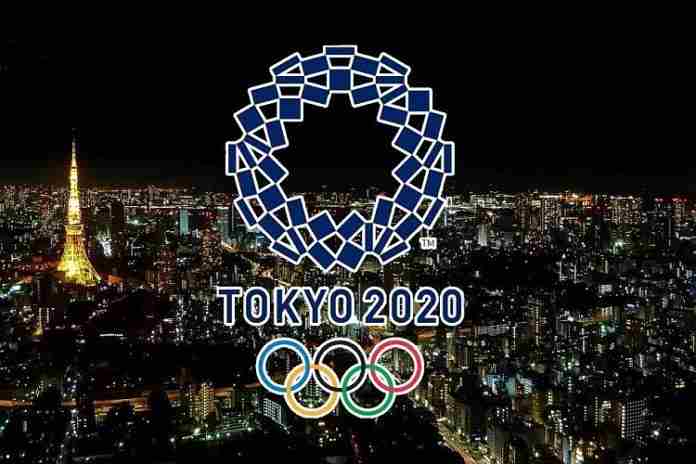(★ Friends: Your 68 amazing donations paid our semi-annual server and support costs, and starts on December’s bill. If you would like to help, please donate here. Your enthusiasm for this site is the reason it continues. ★)
A bill which could place the United States Olympic & Paralympic Committee in jeopardy of suspension by the International Olympic Committee is set to come to the floor of the U.S. House of Representatives as soon as Tuesday, 29 September.
The U.S. Senate passed S. 2330, the Empowering Olympic, Paralympic and Amateur Athletes Act of 2020 by unanimous consent on 4 August.
The bill is primarily concerned with the athlete abuse protection in the wake of the Larry Nassar gymnastics scandal and increases current and retired athlete participation in the USOPC, requires mandatory funding of $20 million annually to the U.S. Center for SafeSport by the USOPC, increases USOPC oversight requirements of the U.S. National Governing Bodies and forms a 16-member “Commission on the State of U.S. Olympics and Paralympics.”
It also includes sec. 220552, which would allow:
“(a) Dissolution Of Board Of Directors Of Corporation.—Effective on the date of enactment of a joint resolution [of the Congress] described in section 220551(2)(A) with respect to the board of directors of the [U.S. Olympic & Paralympic Committee], such board of directors shall be dissolved.
“(b) Termination Of Recognition Of National Governing Body.—Effective on the date of enactment of a joint resolution described in section 220551(2)(B) with respect to a national governing body, the recognition of the applicable amateur sports organization as a national governing body shall cease to have force or effect.”
All this for an organization which was formed in 1894, received a Federal Charter in 1950, but which receives no – as in zero – money from the U.S. government (the USOPC raises its revenue in the private sector).
Both the IOC and the USOPC have signaled concerns; USOPC chief executive Sarah Hirshland sent a letter last November that included:
“The USOPC should be the sole entity with authority to terminate NGB recognition in order to eliminate any confusion surrounding NGB accountability. Additionally, the International Olympic Committee has made clear that Congress assuming the power to dissolve the USOPC board would violate the Olympic Charter and endanger our recognition by the IOC as a National Olympic Committee.”
A request by one U.S. Senator to remove this section was brushed aside. Sec. 220552 would take effect one year after the date becomes law, which could be as soon as 10 October 2021. That’s after the postponed Tokyo Games of 2021, but before the 2022 Olympic Winter Games in China.
Nevertheless, Hirshland issued a positive public statement about S. 2330 after its passage, noting
“We would like to thank Chairman [Jerry] Moran and Senator [Richard] Blumenthal for their work in drafting and advancing this important legislation. It will cement increases in athlete representation in the U.S. Olympic and Paralympic movements, improvements in athlete safety protections, and increases in transparency and accountability in our system. The USOPC board recently approved the second phase of the most sweeping governance reforms in recent history. Building on that commitment and this legislation, we will move rapidly to implement reforms to address any outstanding provisions from this bill.”
The bill was forwarded to the House on 7 August, while a companion bill, H.R. 7881 was introduced on 30 July and assigned to the Judiciary Committee and the Education and Labor Committee. No hearings have been held on the House side, but there was significant activity on the bill in the last 10 days:
● On 18 September, House Concurrent Resolution 118 was introduced, asking for minor changes to S. 2330 as passed by the Senate. The motion was referred to the Judiciary Committee and the House Administration Committee.
● On 23 September, the Senate agreed, passing Senate Concurrent Resolution 46 to amend S. 2330 as requested by the House. The revised bill is now back in the hands of the House of Representatives.
Informed sources within the U.S. Olympic Movement have confirmed that the bill is due to come up for consideration as early as Tuesday (29th) under a suspension of the House rules. This is a procedure for expedited passage:
“When a bill or some other matter is considered ‘under suspension,’ floor debate is limited, all floor amendments are prohibited, and a two-thirds vote is required for final passage.”
There are procedures which could allow the bill to be passed by a simple majority if it fails to obtain a two-thirds majority (of the members present) on the first try.
If passed, the bill would be sent to President Donald Trump, who would have 10 days to sign it, veto it, or do nothing (in which case the bill would become law).
Amazingly, the umbrella group of the U.S. National Governing Bodies – the NGB Council – is not opposing the bill, despite having the fate of individual NGBs being subject not only to the USOPC, but also to the whim of the Congress.
Sources note that this is not from a lack of interest, but abject fear by many smaller NGBs of being seen as adverse to the SafeSport requirements, even though their size and budgets will not even begin to allow them to actually monitor the activities of their sport’s coaches, clubs and teams across the nation.
If the bill becomes law, one outcome is almost certain: USA Gymnastics will be vaporized as soon as sec. 220552 is activated a year after enactment.
The IOC has apparently hired its own representatives to explain its position on the bill, no doubt explaining that it has used its power to enforce the Olympic Charter before.
At least one Senator has scoffed at this, but this underestimates the IOC’s resolve and excellent leverage in this case. It famously expelled South Africa for its government-mandated apartheid policy from 1970-1991. Much more recently, the NOC of India (population: 1.27 billion at the time) was suspended from 2012-14 due to governmental interference in its elections, and the Kuwait NOC was on suspension for similar reasons from 2015-18.
The future could well be an IOC suspension in late 2021, significantly cutting the size of the U.S. team for Beijing, with American athletes marching in the Opening Ceremony under the Olympic Flag and, for any victory, seeing the Olympic Flag raised and the Olympic Hymm played instead of The Star-Spangled Banner.
The long-term implications of penalizing – and humiliating – the United States would send a thunderous signal to EVERY National Olympic Committee and International Federation that the IOC is gravely serious about its non-interference rules, which will immediately be far more respected everywhere else. The impact of such an action could last 50 years.
Such a sanction would require a renegotiation of the IOC contract with NBC Universal for U.S. television rights for the 2022 Winter Games. But with $2.51 billion in reserves, and as long as all of this is worked out in advance of the 2024 Paris Games, the IOC can handle it. Remember that its U.S. broadcast agreement runs through 2032 and many of its TOP sponsorships are agreed through 2028 or 2032 as well.
Even if the bill becomes law, there is a possibility for revision before the worst comes. The bill’s “Commission on the State of the U.S. Olympics and Paralympics” requires a report within nine months after the enactment date, which could recommend deletion of the two offending clauses. The key to getting the right advice from such a group – 16 political appointees – will depend on the hiring of a quality staff director, such as the now-retired Mike Harrigan, the person most responsible for the drafting and passage of the original Amateur Sports Act of 1978 and one of the few people in the world who actually understands its terms and requirements.
Many of the provisions of S. 2330 have already been implemented by the USOPC through its three rounds of governance reforms and the Commission could be a useful program for further fine-tuning. But there is danger ahead if the proposed bill becomes law.
The Congress cannot say it was not warned, and despite its insistence that its actions will help American athletes, it is athletes – once again – who are likely to be hurt.
Rich Perelman
Editor
You can receive our exclusive TSX Report by e-mail by clicking here. You can also refer a friend by clicking here.







